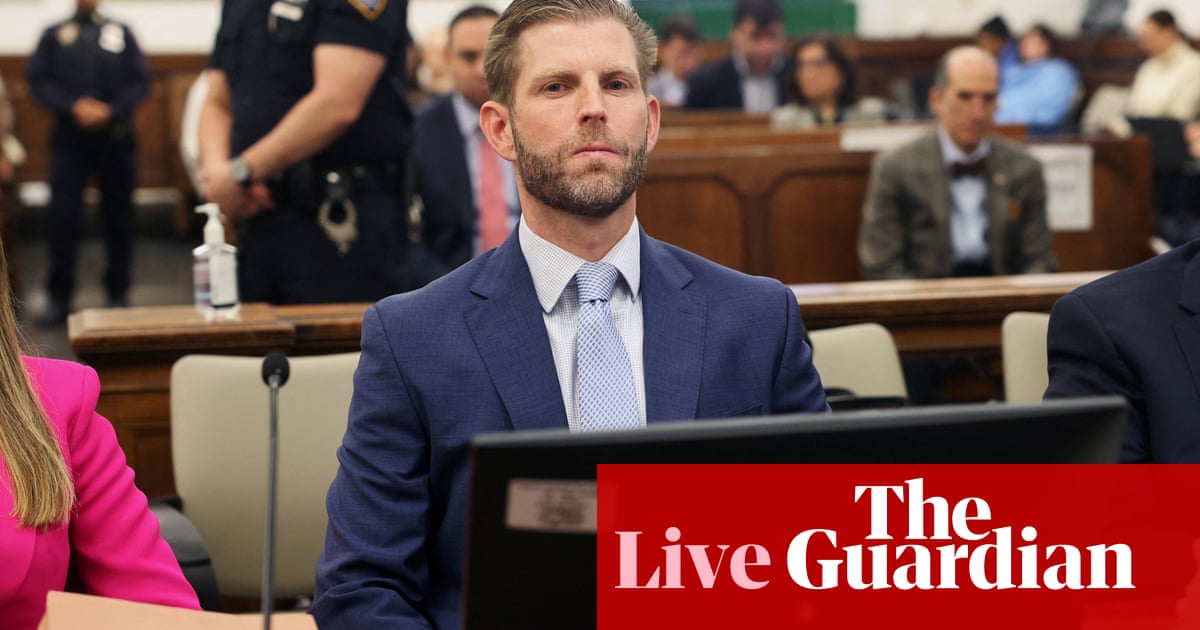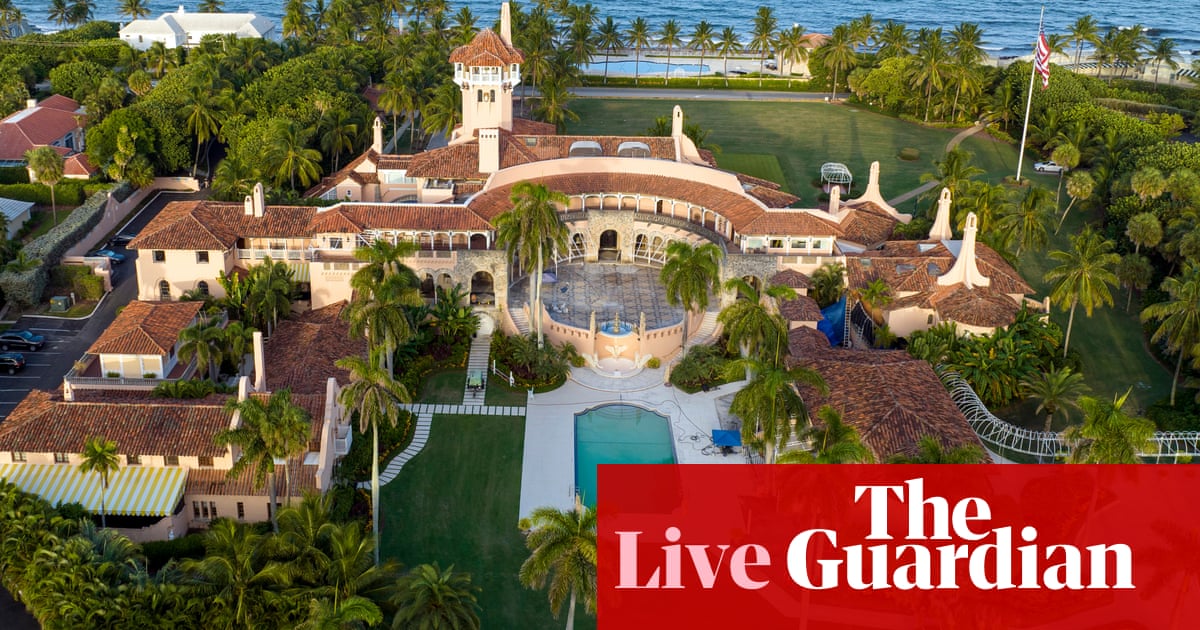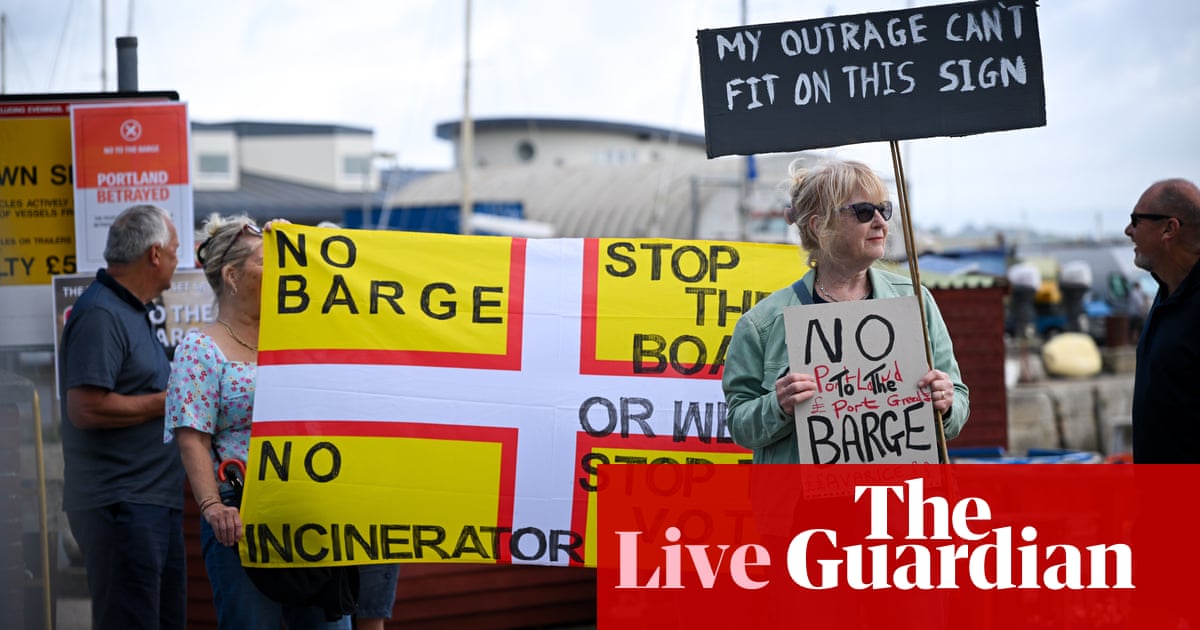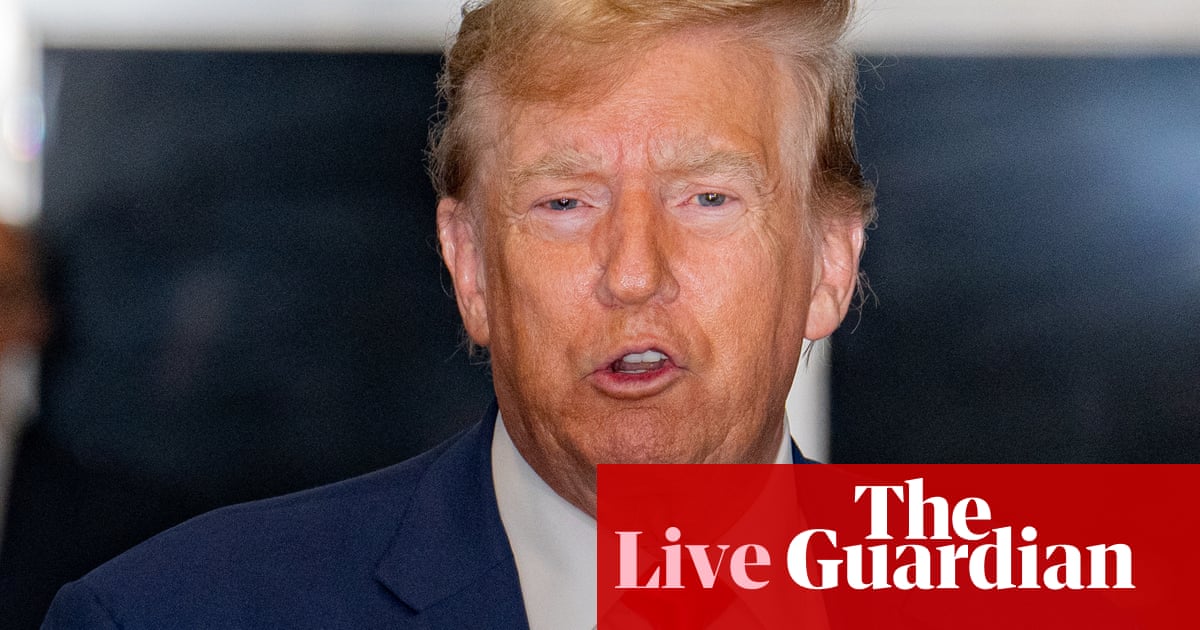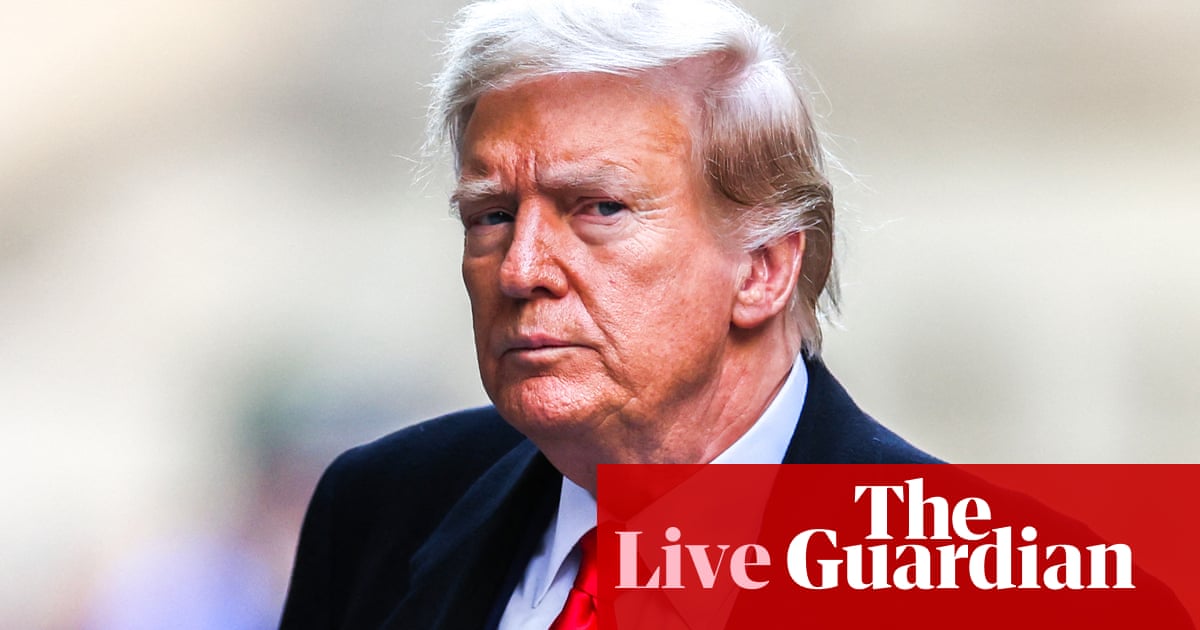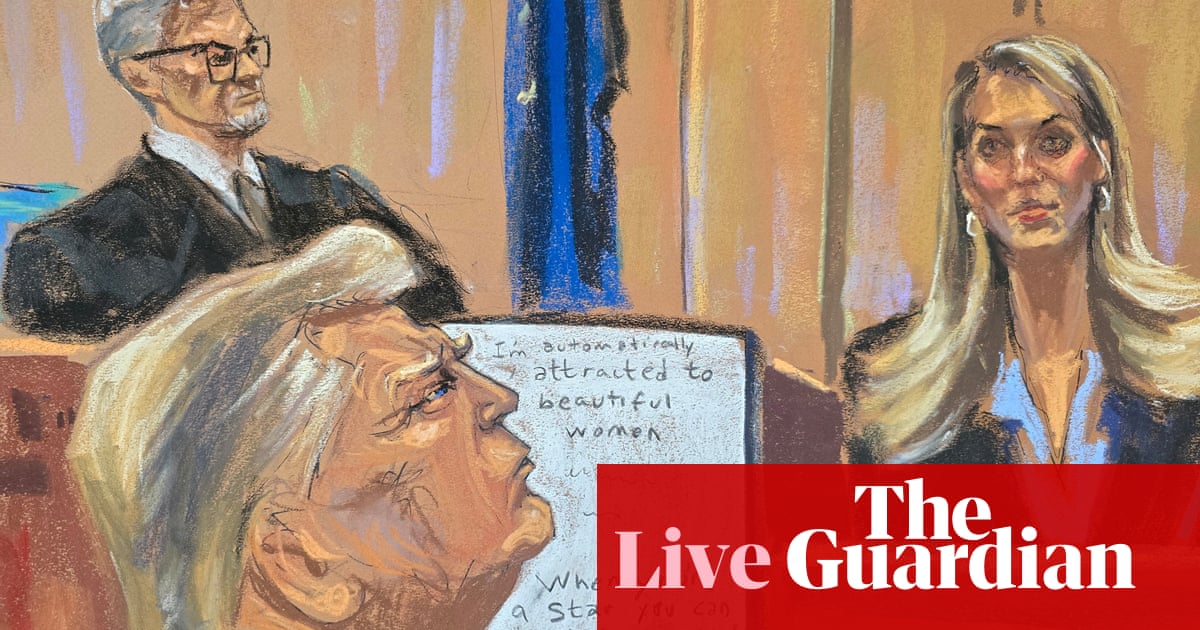
Hicks: Trump was worried about WSJ article"s impact on Melania
Hope Hicks testified that Donald Trump was worried about the Wall Street Journal article that dealt with AMI’s purchase of stories about Stormy Daniels and Karen McDougal, and the decision not to publish them.
She said that Trump was concerned about the article being published -- including how it would affect his wife, Melania. Hicks said:
He wanted me to make sure that the newspapers were [not] delivered to their residence that morning.
Closing summary
Hope Hicks, Donald Trump’s 2016 campaign press secretary, took the stand as a key prosecution witness on Friday in testimony that described Trump campaign staffers’ panic when a recording emerged in which Trump bragged about groping women and the former president’s complete control over the campaign.
Here’s a recap of what happened today:
Hicks placed Trump squarely at the center of his campaign media strategy, telling jurors “we were all just following his lead”. Trump “deserves the credit for the different messages that the campaign focused on in terms of the agenda that he put forth,” she told the court.
Her testimony marked a turning point for prosecutors, as she is the first Trump staffer with intimate knowledge of Trump’s campaign to testify about his alleged misconduct.
Hicks said she was “very concerned” about the contents of an email from a Washington Post reporter about the Access Hollywood tape. “It was a damaging development,” Hicks said. “[The] consensus among us that this was damaging – this was a crisis.”
Hicks was also asked Friday about a media inquiry from the Wall Street Journal, which was running a story in early November 2016 about AMI’s purchase of Stormy Daniels and Karen McDougals’ stories – and failure to run them. Hicks said that she thought she’d spoken with Trump after getting this inquiry.
Hicks said Trump told her to deny that he had a sexual relationship with Daniels. “He wanted to make sure that there was a denial of any kind of relationship,” said Hicks.
Hicks said Trump was worried about the WSJ story and its impact, including about Melania Trump catching word of the coverage. “He wanted me to make sure that the newspapers were [not] delivered to their residence that morning,” Hicks told jurors.
Hicks said Trump told her that Michael Cohen had paid off Daniels to “protect him from a false allegation” out of the “kindness of his own heart”. But, she said, “I didn’t know Michael to be an especially charitable person or selfless person.”
Hicks broke into tears Friday while testifying. The former Trump press secretary cut a skittish figure in the judge’s courtroom, and was clearly uncomfortable and had a quavering voice as she introduced herself to jurors.
Trump’s lawyer, Todd Blanche, argued that prosecutors should not be able to bring up the fact that Judge Juan Merchan held him in contempt.
The judge sided with Blanche, saying that if jurors heard the same court – the same judge – had done so, “I think it would just be so prejudicial, so I agree.”
Court officially done now. Donald Trump is standing, now he’s leaving the courtroom. His eyes lingered on parts of the gallery, but I don’t think you can definitively say that he stared at any one person.
Jurors have exited.
With the jurors gone, Judge Juan Merchan is wrapping up more issues from the Sandoval hearing that hadn’t been flushed out; that is, what Donald Trump can or cannot be asked should he take the stand.
Hicks says Trump "really respects" what Melania Trump has to say
Trump lawyer Emil Bove asked Hope Hicks about how the Karen McDougal story would impact his relationship with his wife.
Trump “really values Mrs Trump’s opinion,” Hicks said. When she does weigh in, it’s “very meaningful to him, he really respects what she has to say.”
She added that Trump did not want anyone in his family to be “hurt or embarrassed” by anything that was happening during the campaign.
Hicks excused and leaves courtroom
Trump lawyer Emil Bove’s cross has ended. Prosecution has nothing further.
Hope Hicks is stepping down from the stand.
Hope Hicks described Michael Cohen’s role in Trump’s 2016 campaign as “he would try to insert himself at certain moments” but that he did not have an official capacity.
She said Cohen would call himself a “fixer” or “Mr Fix it”, adding it was only because he first broke it.
Hope Hicks is back on the stand after she became emotional as the defense began cross examination. Trump attorney Emil Bove continues.
Hope Hicks testified that Donald Trump told her he had spoken with Michael Cohen the morning after he gave a statement to the New York Times that he had made the hush-money payment to Stormy Daniels without Trump’s consent.
“Michael [Cohen] had paid this woman to protect him from a false allegation and Michael felt like it was his job to protect him and he did it out of the kindness of his own heart,” Hicks recalled Trump saying.
Hicks said she believed it was “out of character” for Cohen, adding that she “did not know Michael to be an especially charitable person or selfless person”.
Court takes break after Hicks begins to cry
Hope Hicks broke into tears as the defense team began cross examination.
The court is now taking a short break after the judge asked Hicks whether she could use a break. “Uhm, yes please,” she’d said.
When Hicks walked out of the courtroom, a wrinkled piece of tissue could be seen balled up in her hand.
While Hope Hicks cut a nervous figure as she took the witness stand Friday, the former top Trump aide seemed to appreciate the absurdity of this situation.
The prosecutor asked Hicks about text messages she exchanged with Michael Cohen after the Wall Street Journal published an article describing how AMI bought stories about Karen McDougal and Stormy Daniels, and then opted out of publishing them; this report ran on 4 November 2016.
When she read Cohen’s missive about the article, where he called it “poorly written and I dot see it getting much play,” Hicks chuckled. “A little irony there,” she said, again laughing softly. “ I said I agree with that.”
Hicks: Trump was worried about WSJ article"s impact on Melania
Hope Hicks testified that Donald Trump was worried about the Wall Street Journal article that dealt with AMI’s purchase of stories about Stormy Daniels and Karen McDougal, and the decision not to publish them.
She said that Trump was concerned about the article being published -- including how it would affect his wife, Melania. Hicks said:
He wanted me to make sure that the newspapers were [not] delivered to their residence that morning.
Hicks tells court she was in contact with Cohen over WSJ story
Hope Hicks testifies that she was in contact with Michael Cohen after the Wall Street Journal story was published.
The jury is shown a series of text messages between Hicks and Cohen discussing the aftermath of the WSJ article, including one in which Cohen says “no one believes it and if necessary, I have a statement by Storm[y Daniels] denying everything and contradicting the other porn stars statement,” adding:
I wouldn’t use it now or even discuss with him as no one is talking about this or cares!
“Agree,” Hicks replied.
Hope Hicks is then asked about her response to the story about the American Media deal with Stormy Daniels, in which she said at the time that it was “absolutely, unequivocally untrue” that Daniels had a relationship with Donald Trump.
Hicks testifies that what she told the Wall Street Journal “was what was told to me”.
Hope Hicks is being asked about her response to the Wall Street Journal story about the American Media deal with the former Playboy model Karen McDougal.
Hicks’ response to the WSJ story, printed in the article, was that “we have no knowledge of this” and that McDougal’s claim of affair with Donald Trump was “totally untrue”.
Hicks testifies that she cannot definitively remember whether Trump told her to say that “we have no knowledge of this” in response to the WSJ request for comment.
Before lunch, Hope Hicks had said that she thought she’d spoken with Donald Trump after receiving the inquiry from the Wall Street Journal, but it was a “very fuzzy,” recollection.
She’d said of Trump’s response:
He wanted to know the context and he wanted to make sure there was a denial of any kind of relationship.
She expressed confusion as to why he wanted to do that.
I felt the point of the story that National Enquirer paid a woman for her story and never published it.





